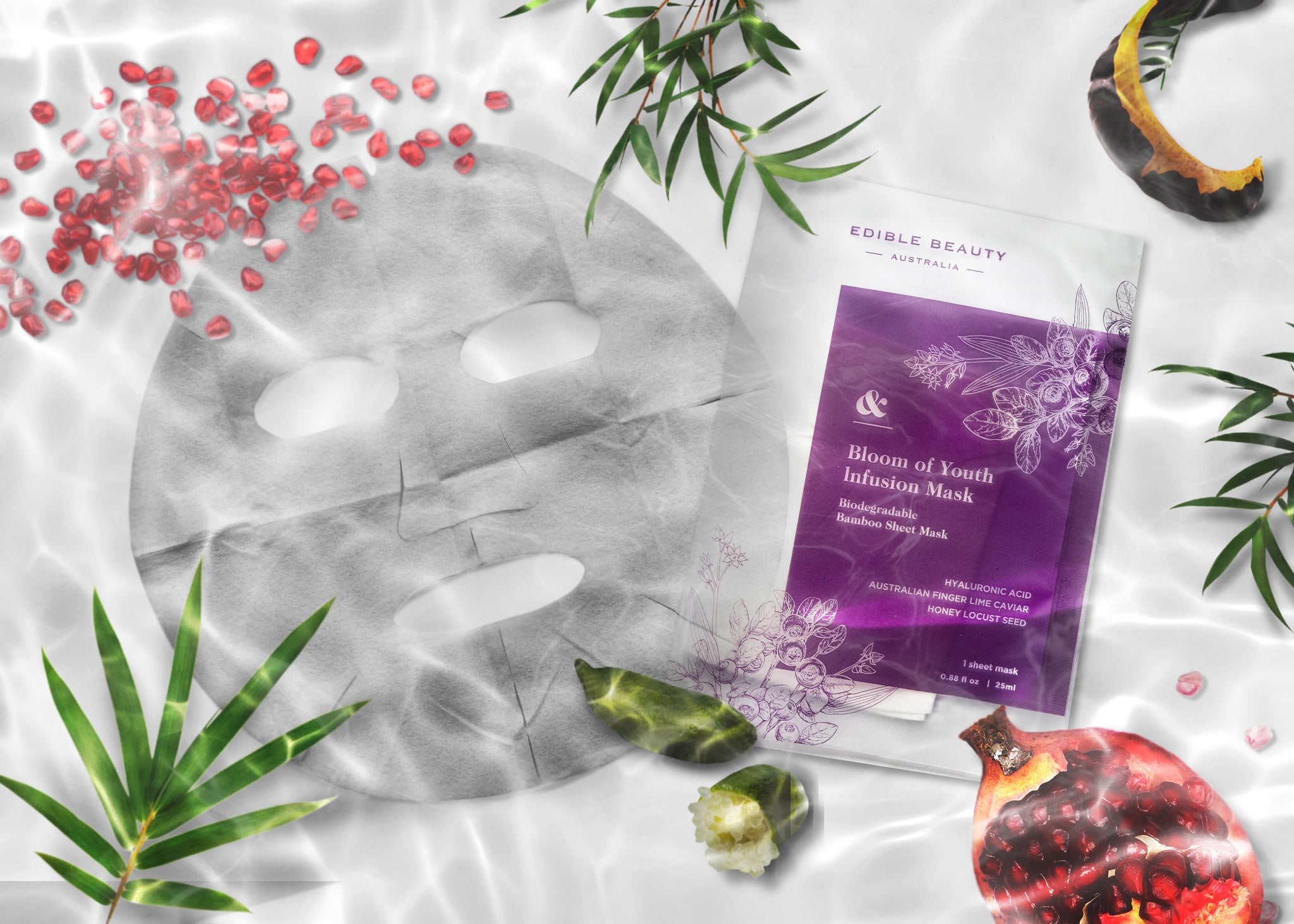Not So NATURAL “Natural” Beauty Product Ingredients

With relaxed regulation and no legal definition around natural, pure and organic products on the market, there can often be a lot of confusion around whether products marketed as “natural” are actually living up to their claims.
When it comes to labeling a product can be labelled as “natural” or “made using organic ingredients” but still contain a host of synthetic fillers, preservatives and fragrances. Whilst many ingredients may come from natural sources or plant-based sources the synthetic chemicals used in the processing of the product can outweigh any benefit from the pure ingredients contained in the product. Furthermore when it comes to organic certification, this comes down to national legislation with no global certification board for organic products and each country's benchmarks can be different.
Several common ingredients to look out for in skincare that is marketed as “natural” include:
- Phenoxyethanol: This is a petroleum derived preservative which is restricted from use in Japan. It is readily absorbed via the skin and effects from exposure may include eye irritation and headaches. It has also been linked to mild irritation on sensitive skin, suspected reproductive and developmental toxicity as well as toxicity to the kidneys, nervous system and liver.
- PEGs: Polyethylene Glycol (PEG) are petroleum based compounds which are made up of ethylene glycol polymers. When you see this on an ingredient list the name PEG is followed by a number correlating to how many units of ethylene glycol they comprise, e.g. PEG-4 or PEG-100; the lower the number, the more easily the compound is absorbed into the skin. PEGs are used in many personal care products including skincare lotions, sheet masks, and makeup as emollients, emulsifiers and as penetration enhancers or vehicles that help deliver other ingredients deeper into the skin. The main concern associated with them is their potential contamination with toxins. Impurities found in various PEG compounds include ethylene oxide; 1,4-dioxane and heavy metals such as lead, iron, cobalt, nickel, cadmium, and arsenic. 1,4 dioxane is a by-product of the creation of ethylene oxide, and is a known carcinogen with the ability to accumulate in the body. There is increasing awareness around the low-dose health effects of petrochemicals, in particular due to their inability to biodegrade or break down in the body. There are petrochemicals in everything from products containing plastic to our skincare products and we are only really just now beginning to discover their serious long-term effects.
- Benzyl Alcohol: This is a preservative or solvent that may be petroleum derived and is found in many personal care products including those marketed as natural. It is claimed to be safe and approved for use up to 5% of cosmetic formulations by the FDA and at a maximum concentration of 1% by the European Union. It has been associated with a weakening of the immune system which can gradually lead to skin sensitivity and reactions. One study has found that it instigates an immune system response that can include itching, burning, scaling, hives, and blistering of skin. Prolonged used has been linked to allergic contact dermatitis and it may also be toxic to the liver and central nervous system.
- Cocoamidopropyl betaine: This is a synthetic surfactant (used to create foam) derived from coconut oil commonly used in body washes and cleansers. It has been linked to allergic reactions, sensitisation and may contain harmful impurities damaging the immune system. Decyl glucoside is a safer green surfactant that can be used instead of Cocoamidopropyl betaine.
- Mineral Oils: Mineral oils are essentially an oil made from petroleum are a by-product of the distillation of petroleum to produce gasoline. Mineral oils are an inexpensive filler ingredient for in various skincare and personal care products. They are common ingredients in lotions, creams, ointments, and cosmetics (especially concealers, foundations and eye shadows). Baby oil and petroleum jelly are two common products containing mineral oils and petroleum. Mineral oils cannot be readily metabolised by the body and have been found to accumulate in human fat tissue. 1,4 dioxane, a known carcinogen, is an impurity found in 22% of mineral oil products. Mineral oils are also classified as xenoestrogens with studies showing they have the endocrine-disrupting potential, acting via oestrogen hormone receptors to either block receptors or potentiate the effect of oestrogen.
Why can you trust in Edible Beauty Australia products
As the founder of Edible Beauty Australia, I feel so strongly about our products being “edible” that I pledge that “if you would not put in your mouth we would not put it in our products”. As a naturopath I created the Edible Beauty range whilst working at a fertility clinic. I was recommending that in addition to changes to their food and lifestyle routines, my patients consider what they were putting on their bodies. I was wanting to create a luxurious, therapeutic yet incredibly pure skincare line that had no immune, hormone or central nervous system disrupting side effects and that was literally good enough to eat.
This means that not only are our products free of the usual nasties – sulfates, parabens, phthalates etc., they are also free of benzyl alcohol, fragrances, propylene glycol, all preservatives, colours, synthetics and any ingredient that you would not recognise or find in your food. Every ingredient in our products is derived from a plant, mineral, food or vitamin and is literally good enough to eat.
Being edible does not mean that we compromise on the therapeutic actions of our skincare range. In fact, the regenerating, healing and ant-ageing benefits of our skin care is enhanced through the inclusion of hydrating, antioxidant, nutrient and mineral-rich botanical extracts. Like the other organs in our body, the skin exudes youthful vitality and radiance when it harmoniously absorbs the living nutrition and subtle energy from nourishing toxin-free food and skin care.
